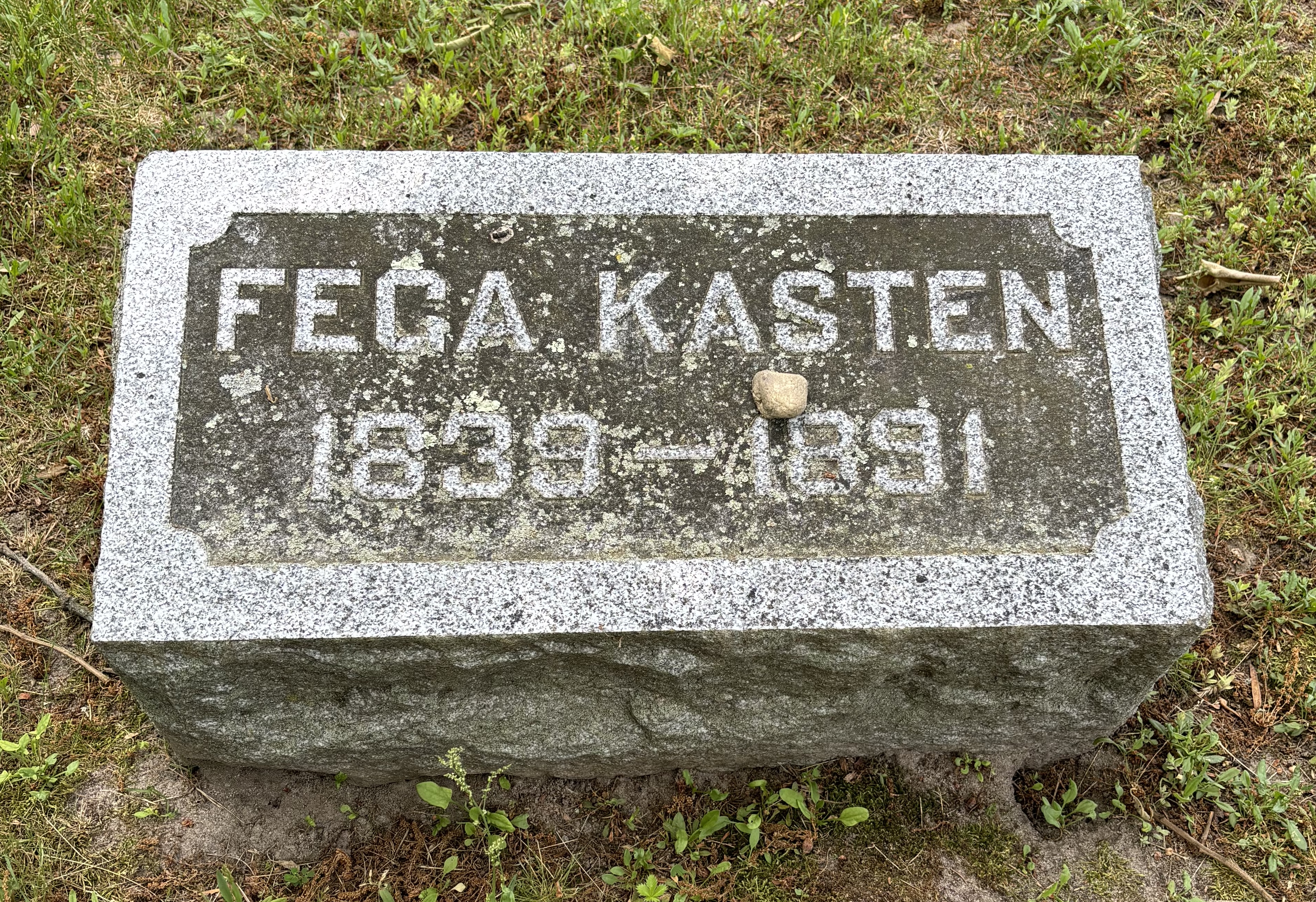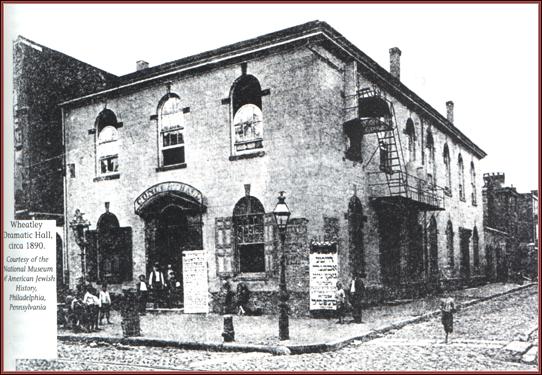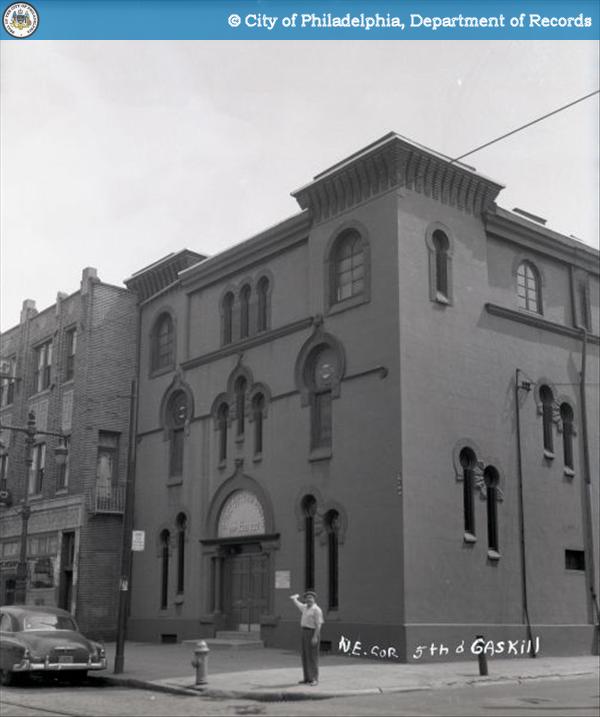9 Between theater and family
Published in the Forverts on October 17th, 1946
My mame wanted me to make me a farmer. – Her last words to me before she died.1
In those days, people used to play for “stamps”2, and the actors could not behave peacefully around themselves, because every time they had to split the pitiful3 earnings among themselves, each one was sure that an injustice was being done to him, and he had grievances. Also in Gartenstein’s troupe, who came to play Yiddish theater in Philadelphia, the actors used to fight. And these fights ended with the troupe splitting into two, and both left Philadelphia to try their luck in other cities.
That’s usually how it went when one troupe became two. Playing at Gartenstein’s got my head so twisted that I couldn’t work in the shop anymore. I convinced myself that it no longer suited me to work in a shop. I opened a sort of dance class and in the evenings I taught young boys and girls to dance, and from this I got “water on porridge”4. But I was still satisfied, because dancing has a bit of a relationship to theater…
At that time, the actor Rudolph Marks5 came down to Philadelphia with a troupe. And as soon as I heard this, I immediately went to him.
– Take me in, - I requested of him. - I want to play theater and even more, I’d really be a great fit for your troupe.
He was a very good actor, Rudolph Marks, and besides, he came from a very nice family, and they said that his father was a very great scholar who also wrote books in the loshn-koydesh6. He himself, Rudolph Marks, was also an intelligent young man, and later he actually studied to be a lawyer and gave up the stage. But in the years when he was an actor, great hopes were placed on him and he was greatly praised, but the trouble with him was that what he really wanted was for people to consider him as great an actor as Mogulesko, and he made every effort to be a Mogulesko.
In Philadelphia, Rudolph Marks performed a play which he translated from English, and the play was called, I remember, Saylor in Gefar7 I didn’t ask Rudolph Marks for any money for my acting. It never occurred to me to ask him for money for my acting. I was satisfied with what he immediately gave me to play the role of a boy who sells newspapers in the streets, and I diligently began to study this role, and I was sure that I would play it very well. But when I arrived to the second or third rehearsal, Rudolph Marks took the role from me and told me to go home.
They didn’t need me anymore… why?
Because Rudolph Marks realized that, just as Mogulesko had shown, he also wanted to show that he could play not just one role, but two and even three roles in one play, and indeed each all different sorts of character. And he decided that on top of the two roles that he was already playing, he should also play the role of the boy who sells newspapers in the streets…
Let Philadelphia see what he can do, and let them say he doesn’t show the same skills as Mogulesko!…
And then something happened that is very characteristic of how things were. You could get away with things like this I could afford to do it in the meantime, and it is therefore worth telling here:
Together with a landsman of mine, who fell in with what I am going to tell here, I went to the theater where Rudolph Marks played the Saylor in Gefar. We sat there at every performance, and listening to every word, we transcribed the whole play, and afterwards we pieced it together in our own way, and indeed right away we put together our own troupe, rented the Dramatic Hall8, and there we performed the same play, indeed our own Saylor in Gefar that Rudolph Marks had played. And just like him, I played all three roles in the play, and people said it was good.
It had to be good, because I did the same as him in all three roles. I simply imitated him, and it was successful for me… He then became very angry with me, and threatened he would get even with me for this. But it didn’t save him at all.
Whenever a Yiddish troupe came to Philadelphia, I was the first to present myself to them to be given a role to play. And when Boris Thomashefsky9 came down to play in Philadelphia and he staged the play Kibed Ov, he gave me the role of some shames10, and that, I think, was the first time I wore a beard on stage and played an older Jew11.
Incidentally, I didn’t give up that beard after playing there. Sometime later when I was working again in the shop where, as it used to go in those times, we sung Yiddish theater songs while working, all it took was for me to stroke my beard and call out some song, and the mood would be lively and cheerful.
Once, when I was at work in the shop, my sister Donia suddenly burst into the shop with some big news:
– Sam! - she shouted with joy. - We’ve had a stroke of luck: I won ten thousand dollars!…
She won the ten thousand dollars in some lottery, and that brought a lot of joy to our family and we were suddenly prosperous.
Then my mother started to argue with me that I should knock “this mishugas” out of my head, meaning meant that I should no longer think about such a thing as becoming an actor.
– It’s not for you, Shmuel’ik - she said to me, calling me by my haimishe name. - This is only for an idler, for a loafer, but not for you…
She was always looking for ways to get me to knock “this mishugas” out of my head. The others in the family were also looking for ways to get me away from it. And because of that, they bought me a farm in Bridgeton, New Jersey12, and I became a farmer.
I then worked for a long time on the farm which was bought for me, but I confess that my head was not with me at work, because the whole time I was thinking about theater and dreaming about playing on the stage. But my mame did everything she could to make me forget about this, and once I even had to keep her my word that I wouldn’t become an actor…
She was very satisfied with this, and she did everything in her power for me to feel at home on the farm so that I would stop dreaming of the theater, but you could still see, that it was clear that she was still aggrieved that I was lonesome and sad on the farm while still dreaming so much about the theater.
You could see this, but she didn’t say anything about it.
So a long time passed, and once when I was busily working on the farm, my sister came running to me, out of breath -
– Sam, come quickly; Something has happened to mame!
Frightened, I rushed back home, and when I entered, I was even more frightened; mame was lying in bed, unable to speak, and her face was as pale as the wall.
It took several weeks before she regained the ability to speak. But it was difficult for her to speak, and once, when I and the rest of the family were sitting with her, she took me by the hand and began to speak to me in a way that everyone could hear:
– Shmuel, - she said, - I know how difficult it is for you to be here; I understand that you are not pleased that that you had to give me your word, that you will get this mishugas out of your head. I see this… Nu, if I had lived, maybe it would have been different, but as it is, apparently, I am not destined to live long, I know. So you should know, that I no longer hold you to your word… You can do what you want; Go your own way… And if you really want to live your life as an actor, well, so be it, what are you doing to do…13
And a short time later she died.

These are two separate taglines. These were not her last words to him.↩︎
System of payment in which each actor in the company received an agreed percentage of any profits according to their “stamp.”↩︎
my translation; Sam uses “poor, miserable”↩︎
Phrase in Yiddish meaning to be dirt poor and starving. So, he was not making a living.↩︎
the “holy tongue”; refers to Hebrew↩︎
“Sailor in Peril.” Based on Bessie Thomashefsky’s memoirs, this would have been during the first few days of Pesach; So, likely either late March 1888 or late April 1889.↩︎
Located at the northeast corner of 5th and Gaskill, right above South Street.↩︎
He would soon become a major figure in Yiddish theater in America; at this time, he was young and recently married to Bessie. It’s also worth noting that Boris & his troupe were already in Philadelphia in competition with Gartenstein, and moreover we know from Bessie’s memoir that in fact they approached Sam, and not vice versa, to invite him into their troupe. It was not too difficult to convince him, in part, because Sam and Bessie are cousins.↩︎
Rabbi’s assistant, essentially; this would be an extremely religious character.↩︎
According to Bessie’s memoirs, Sam played in their troupe during the summer of 1889.↩︎
This is essentially part of the Alliance Colony, a Jewish agricultural colony in Cumberland County founded by Russian Jews who fled pogroms in as part of the larger Am Olam movement↩︎
She uses an idiom here that I can’t find the right words for; she says “What can you to do help yourself…”↩︎

